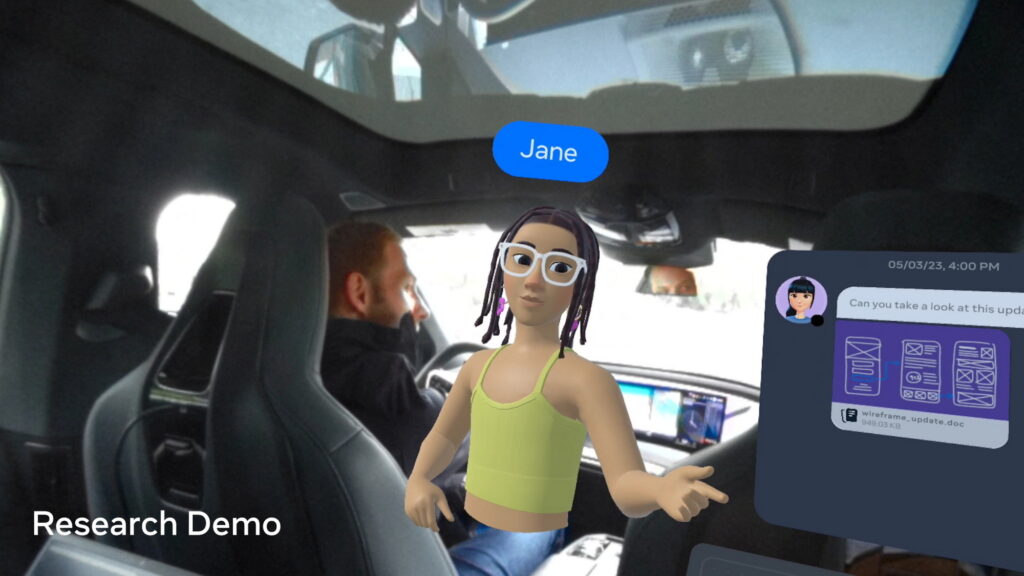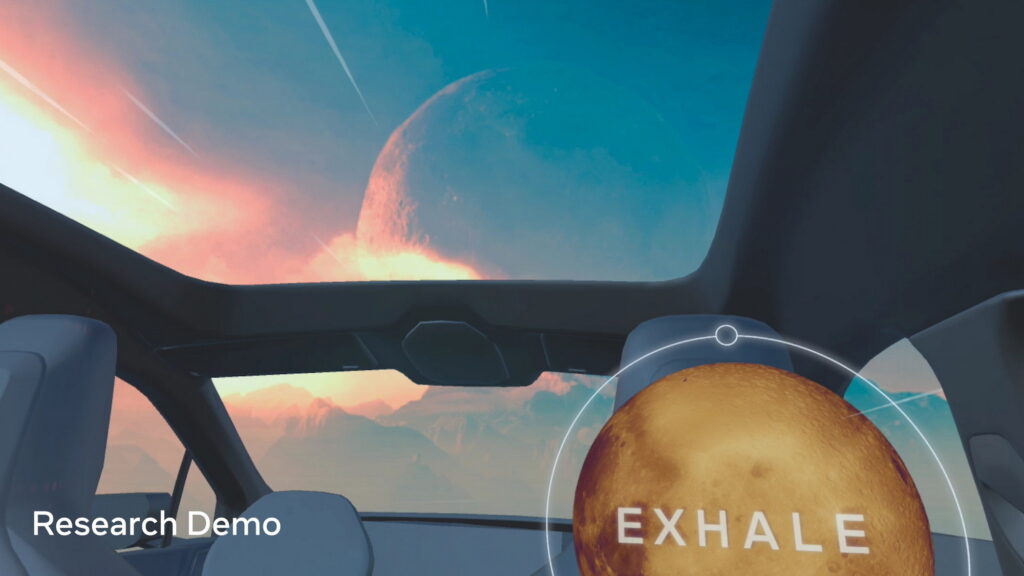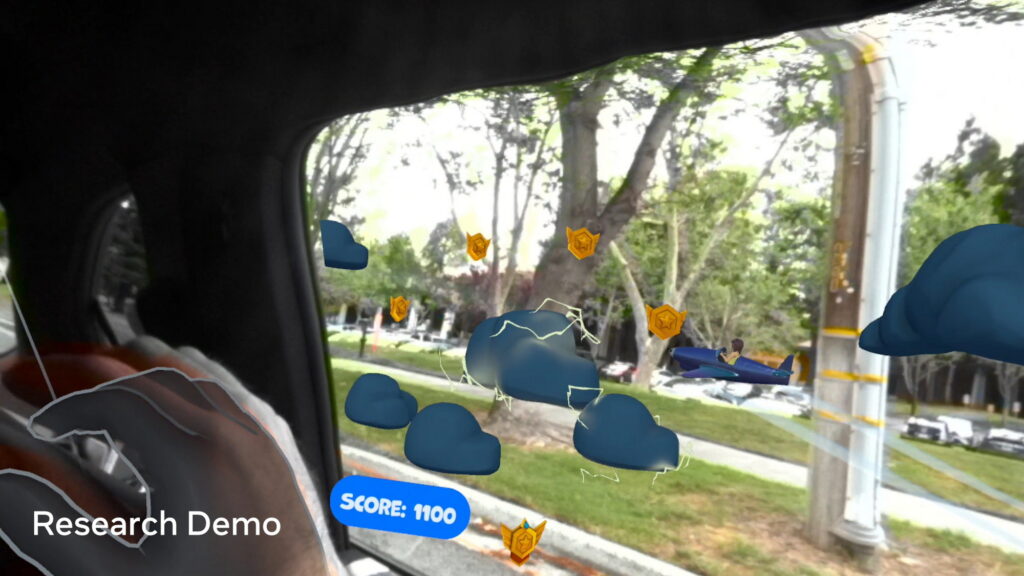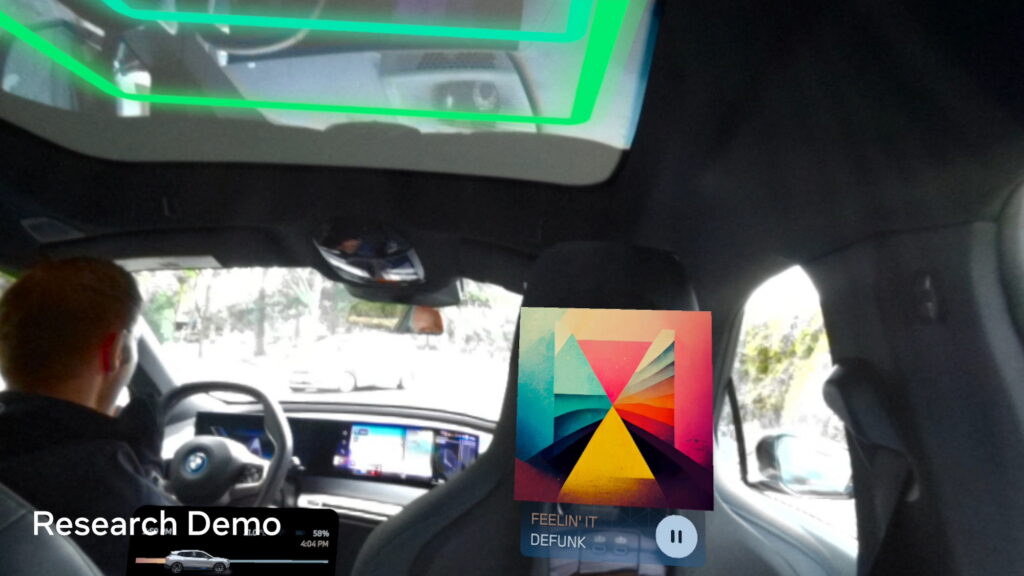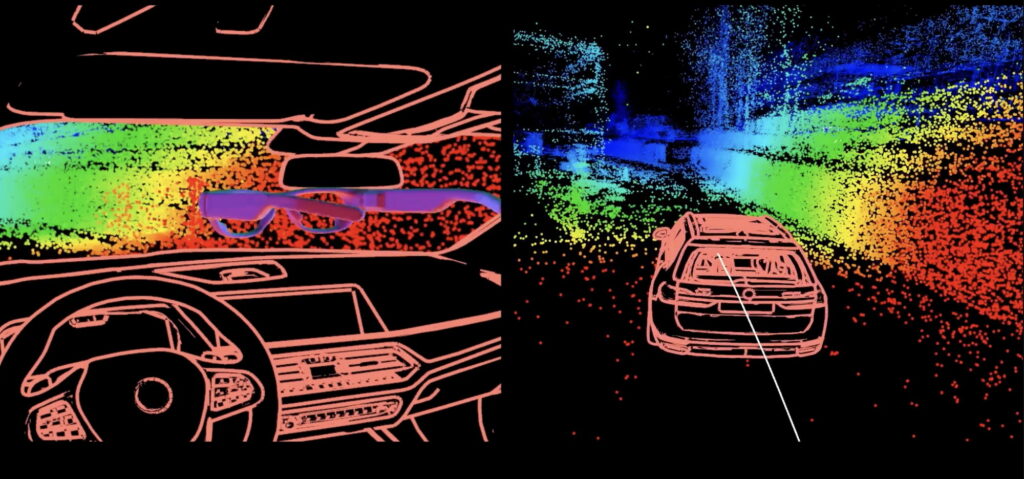BMW has been working on integrating virtual reality into its vehicles for 10 years. Until recently, the technology hasn’t really worked because VR devices get confused by the motion of the car and the visual stability of its interior. The automaker says it has now cracked the technology thanks to help from Meta.
The company formerly known as Facebook and BMW have created a proof of concept VR headset that can understand the difference between what is going on inside the car and what’s going on outside of it.
“It is too early to tell exactly how or when this technology will make it into customers’ hands, but we envision a number of potential use cases for XR devices in vehicles — from assisting the driver in locating their car in a crowded parking lot to alerting them to hazards on the road and surfacing important information about the vehicle’s condition,” said Claus Dorrer, head of BMW Group technology. “The implications of future AR glasses and VR devices — for passengers as well as drivers — are promising.”
Read: 2023 BMW M2 Turned Into The World’s Most Elaborate Video Game Controller
To get around the problem of what the camera sees not matching up with what a VR headset senses, BMW hooked a vehicle’s sensors up to the tracking system of a Meta Quest Pro. That allows it to calculate both the device’s location relative to the car, and the car’s motion relative to the rest of the world.
“Our research prototype shows that we can enable entertaining and comfortable passenger experiences that are anchored to the car itself, including [virtual reality] VR and [mixed reality] MR gaming, entertainment, productivity, and even meditation capabilities,” said Richard Newcombe, VP of research science at Meta’s Reality Labs Research.
And although that’s all well and good, Newcombe proposes a few features that might be a little more practical. These include using AR glasses to point to landmarks, restaurants, and other places of interest. But this is only the beginning.
“The research partnership with Meta will allow us to discover what immersive, in-vehicle [extended reality] XR experiences could look like in the future and spearhead the seamless integration of such devices into cars,” said Dorrer.








